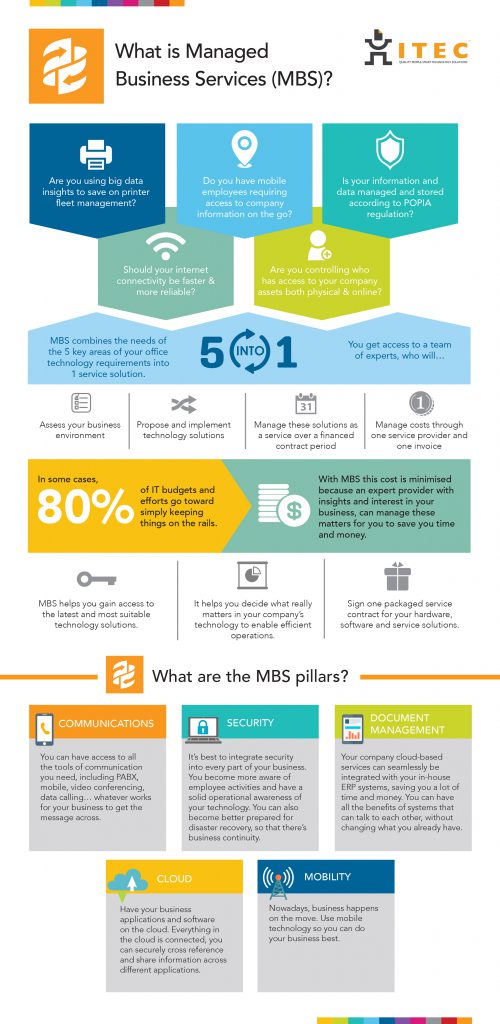Daniel Lotter, Head of Bids and Tenders at Itec SA, looks at how many organisations are utilising Managed Business Services.
We’ve been through the range of ‘as a service’ models – Software as a Service (SaaS), Platform as a Service (PaaS) and Infrastructure as a Service (IaaS). Now we’re in the age of Everything as a Service (Xaas) – or, as we prefer to call it, Managed Business Services (MBS) – and South African companies can’t get enough of it.
Part of the reason for this is the current economic climate. With the purse strings tight, companies are reluctant to invest in technology – but at the same time, they not only have to keep the business running, but are under huge pressure to lower costs, streamline their operations and simplify management challenges.
This was highlighted in the results of the 2018 ITWeb Brainstorm CIO Survey. Almost half of the CIOs polled said IT departments were increasingly being asked to prioritise efficiency and cost savings across the entire business, not just IT. In addition, a quarter of the respondents said they were responsible for accelerating development of new lines of business to increase revenue.
The beauty of MBS is that it provides a fully-customisable menu of utility-based offerings that can be consumed on a per-seat, per-month model, depending on usage. Basically, companies still have all the IT services, security, communications services and printing services they need – without the investment in the technology.
A big drawcard for MBS is that it’s billed as a straight operating expense. This is particularly relevant, as accounting standards on rental agreements are changing early next year that will force companies that used to have lease or rental agreements off-balance sheet to report on these agreements. As an operating expense, MBS provides all the necessary services the company needs without the need for onerous reporting.

One of the major drivers of MBS adoption in the local market is the growing need for data security and compliance. South African companies are under greater threat than ever from cyberattacks, and at the same time, are having to contend with an increasingly complicated regulatory environment. For many companies, it’s simply easier to outsource these critical workloads to a trusted service provider, freeing them up to focus on their core business.
Print management remains a significant component of many MBS offerings. We may live in 2018, but companies still spend millions of rands a year on print. The Print as a Service model gives businesses key insights into their printing environments, with a better ability to track activity, reduce unnecessary volumes, manage costs and secure your network printers.
The benefits of MBS are compelling. Apart from lower costs, and having maintenance done by the provider, companies always have access to the latest technologies and can bring new business services online quickly. More importantly, companies can respond faster to market developments, as they have constant availability to data and other resources.
The bottom line is, if you’re not exploring an MBS model, you may be missing a major opportunity. There are people who do it faster, better and cheaper than you – and you should be talking to them.


